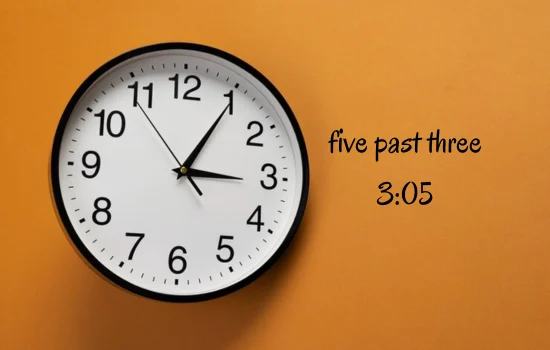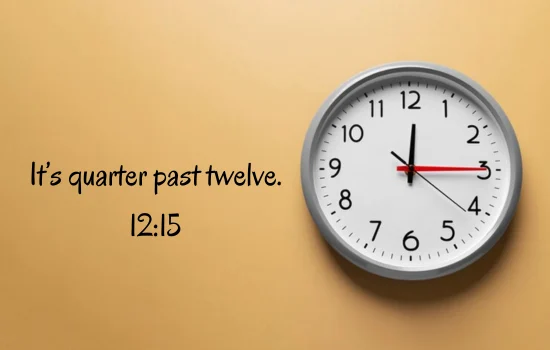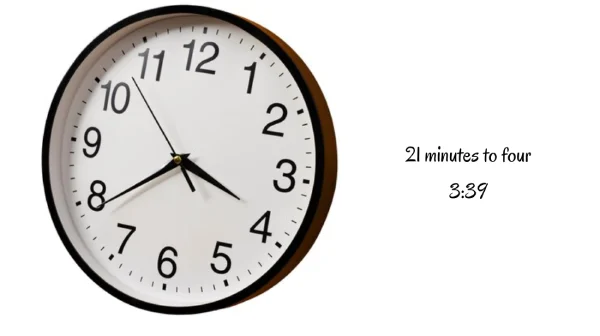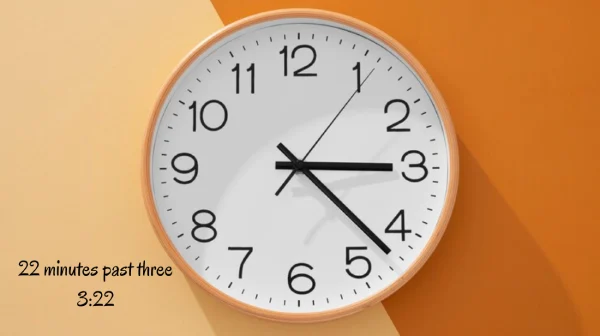
How to Tell the Time in English: Guide & 20 Idioms
Importance of Time
Time is an essential part of our daily lives. It is the most valuable thing that we have. We need time to think about our uncertainties; we need time to spend with our loved ones; we need time to catch up with our shortcomings; and we even need time to show others our sincerity. Basically, time is an abstract concept that is hard to define in just a sentence or two. It is immeasurable; it doesn’t have an ending.
For important occasions in our life, we use time – all the time. However, have you ever wondered how we can tell time appropriately?
Learning to say the correct time is a basic skill that we know since we were young. How do you tell time in your language? Do you directly ask the time, or say it indirectly? Do you have a different pattern in telling time in your own language?
We also have different ways to tell time in English. Whether you are planning an exciting adventure, a regular meeting, booking a hotel or restaurant, traveling for a holiday, or any special activity, knowing how to tell time in English is important.
In this article, we will share with you some of the expressions that you can use when telling time in English. This article is intended for language learners like you, whether you are a child learning English, an adult beginner who just started learning English expressions, or a business professional who uses English at all times.

What you need to know about telling time in English
In telling time in English, you need to know some information about how we appropriately express it in contexts.
The Traditional and Military Time
It’s very common to say time in English using the traditional way, from 1 to 12, the 12-hour cycle. The military time is appropriately used in formal situations and in the military contexts. They use the 24-hour cycle from 1 to 24.
How to tell the time in hour
We already know that when the clock’s long hand is at 12, we say “o’clock” at the end of each hour. For example, the time below says 3 o’clock because the long hand points at 12 and the short hand is at 5.

Telling the time in English with past, half past, quarter past, and quarter to
In British English, we say the time after o’clock by using past, half past, quarter past, and quarter to. Look at the examples below:

five past three

quarter past twelve

half past eight

quarter to seven
In normal conversation, we say 3:05; 12:15; 8:30; and 8:30 respectively. These expressions are used in time pointing to numbers from 5, 10, 15, 20, 25,, 30, 25, 40, 45, 50, and 55. We don’t say “minutes” after these numbers.
For the rest of the numbers indicating exact minutes, we mention the word “minutes” after the time. For example, “2 minutes past 12; 24 minutes past 10; 16 minutes to 11, etc.”
Look at the example time in the clocks below:


Additional Insights
- We use A.M. after the time before mid-day (12:00) and we use P.M. after the time after mid-day or in the evening.
- 12:00 can be called noon or noontime when using it in conversation.
- We say good morning before mid-day; good afternoon after mid-day; good evening after about 6 PM and 10 PM; and we say goodnight after 10 PM or when we go to sleep.
- The time after 12 midnight until 5 in the morning can be called dawn.
- The clock’s long hand states the minutes, and the short hand states the hour.
- The clock’s hands always turn clockwise – meaning, always to the right.
Common expressions to ask for and tell the time
It is important to know the ways on how to ask or tell the time. Below are some of these expressions:
Asking for time
-
- What time is it?
- Could you please tell me the time now?
- May I ask about the time of the _____?
- Please let me know the time of ________.
- Is it okay if I ask about the time?
- What’s the time now?
Telling time
-
- It’s 9 o’clock. (9:00)
- It’s 12 minutes past 5 PM. / It’s five twelve PM.
- We will eat lunch at noon (12:00 PM)
- It’s half past 7 AM / It’s seven thirty AM.
- It’s quarter to 11 / It’s eleven forty-five.
- It’s quarter past 8 / It’s eight fifteen.
- It’s 20 to 4 / It’s three forty.
Idiomatic Expressions and Phrases about Time
Time flies – something passed so quickly
Wow! Time flies so fast! You have been a manager for almost 10 years already.
Beat the clock – to succeed in something before running out of time
I was glad we were able to beat the clock for this new project.
Kill time – to get involved, engaged in an activity or do something to make the time pass more quickly.
While waiting for the train, my friend managed to kill time by browsing the internet.
Better late than never – this expression of time in English expresses the idea of doing something late than never do it at all.
I could not make a progress report on time, but I still tried to submit. It’s better late than never.
Only time will tell – this idiomatic expression of time in English means that something will come out in the future or that an answer will be determined by the future.
Only time will tell about who really took our master’s most expensive jewelries.
Too much time on my hands – too much free time with nothing to do that is pressing.
Do you have any tasks to give me? I have too much time on my hands now.


Living on borrowed time – to continue living after an incident that you almost died
Thanks God, my parents are still living on their borrowed time after the accident.
Once in a blue moon – something happens rarely or sometimes, never
Johnny thought his salary increase would be once in a blue moon.
Against the clock – do something as quickly as possible
You have to complete your tasks against the clock to not miss the deadline.
Round the clock – working whole day or whole night
Most construction workers work round the clock to earn more bucks.
Good timing – something that is in “good timing” occurs at a fortunate time.
It’s good timing that you are here; I will be able to give you my present.
Save time – this expression of time in English means that something can be done in the fastest way or shortcuts
In order to save time, we decided to have a working lunch during the workshop.
Time is on my side – this means that you have ample time to do your tasks or anything that you want to do
I assure you I can finish this report few days before the conference because I can feel that time is on my side now.


The eleventh hour – something happens at the last minute
There were a lot of major changes at the eleventh hour on the coronation night.
On the dot – something happens at the exact time.
Don’t be complacent with logging in on the dot every day.
In the blink of an eye – something happens very quickly
The woman cried hard when she realized her purse was gone in the blink of an eye.
Time after time – this expression of time in English means that something happens takes place repeatedly
My colleagues have been hearing the reminders time after time.
Behind the times – this means outdated or old-fashioned.
Many celebrities wear clothes that are behind the times.
Turn back time – something that you want to go back to the past or relive what happened before
Many of my high school classmates wish they could turn back time and redo our bonding moments together.
Whale of a time – this expression of time in English refers to spending time greatly doing something that is really fun.
I love traveling with my friends because we always have a whale of a time.


Time is an abstract concept. There are a lot of English idioms that can be used when expressing time in English. Whether you want to make an ironic or formal statement, there are a variety of available idiomatic expressions to use about time in English.
Kill time now by expanding your vocabulary about time in English. Have a whale of time, but don’t do it once in a blue moon. Remember, you can’t turn back time, so grab the chance while you have too much time on your hands.
You would never know you have improved your vocabulary about time in English. Time flies fast, so don’t learn behind the times. It’s a good timing now. Start learning now, time after time. It doesn’t happen in the blink of an eye, but it’s also better late than never.

Вам могут понравиться эти статьи